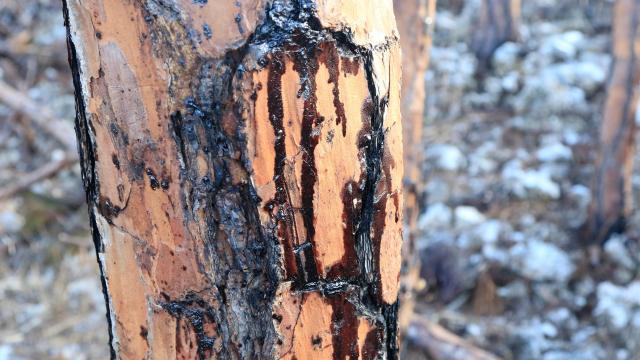Nearly 19 million litres of oil spilled from a Bahamas facility in the wake of Hurricane Dorian. And now advocates have found evidence that the oil from the facility has made its way into nearby wetlands, pine forests, and mangroves.
The Category 5 storm hit Grand Bahama and Abacos Islands last month, home to an Equinor oil facility. The company is still cleaning up the mess left behind at its South Riding Point facility in High Rock, which hugs the southern coast of Grand Bahama. Unfortunately, Equinor’s 250-people crew hasn’t been able to work quickly enough to keep oil from seeping into the environment.
Organisers with Waterkeepers Bahamas and Save the Bays took five samples within a kilometre of the facility on September 23 and 25. They also took two control samples in unaffected areas. Comparing the samples, they found levels of petroleum constituents that were “well beyond what is naturally occurring,” Christian Breen, a field investigator for Waterkeeper Alliance, said in an emailed statement.
“The sample profile is distinct and consistent with the makeup of heavy-grade fuel oil, which is not supposed to be there,” he said.
The main concern is that the oil will eventually make its way deeper into the island’s scarce freshwater resources. These wetlands serve as a place where water is filtered before entering the underground water table. The oil, however, can diminish the quality of the Bahamas’ groundwater once the oil dissipates and travels farther, Rashema Ingraham, executive director of Waterkeepers Bahamas, told Gizmodo. Wildlife that call the wetlands home can obviously suffer, but so can people who depend on groundwater for drinking or freshwater resources for fishing.
“The impact won’t happen within a month, really, but gradually over time as the oil makes an attempt to degrade into the soil,” Ingraham said. “The soil is going to soak it up, and the water is going to go into the water table, so that area will always have some traces of the oil that spilled during the hurricane.”
The West Indian woodpecker and red-legged thrush are migratory birds that can be found in Grand Bahama’s wetlands. They’re at risk if they come in contact with any of the toxic oil residuals, and they’ll continue to be at risk as climate change makes disasters like Hurricane Dorian more likely.
Ultimately, the way to avoid such catastrophes from fossil fuel infrastructure is to get rid of it altogether. After all, all our oil consumption is exacerbating the climate crisis — and island nations like the Bahamas are the ones that suffer the most.
“In order to see change, we need to end the use of fossil fuels,” said Ingraham. “We will always be impacted by these changes. Each island, each country, each state has the opportunity to say no to these industries making millions off fossil fuels and heavily impacting small island nations like ours, like the Bahamas.”
Gizmodo has reached out to the Bahamas Environment, Science, and Technology Commission to learn more about its own monitoring efforts. We’ll update the story if we hear back.
